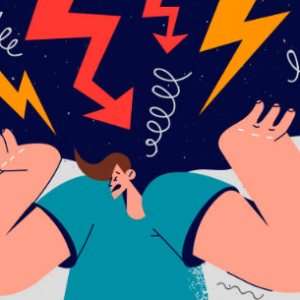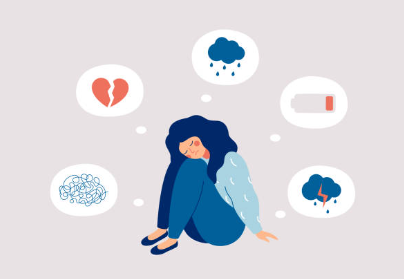The psychoanalytic theory founded by Freud has a term called “castration anxiety”, which refers specifically to the boy’s subconscious fear of being castrated by his father caused by the Oedipus complex.
The “mental castration” referred to in this article refers to the psychological impact of one party’s denial of the other party’s words and attitudes between male and female lovers and husband and wife. The direct result is a decline in the other person’s self-esteem, lower self-evaluation, impaired self-confidence and loss.
Although “castration” only happens to men in a narrow sense, there is no “sex discrimination” in “spiritual castration”, and it is possible for men to women and women to men.
This result does not happen to everyone.
People who are relatively strong and mature in their self-evaluation system, and whose self-evaluation ratio is greater than others’ evaluation components, are less affected. On the contrary, those who are not mature and stable enough and pay too much attention to external evaluation will be greatly affected.
For some, the effect is even devastating.
No matter what kind of person, treating them with a negative attitude is not constructive but only destructive to the relationship. In an intimate relationship, such an attitude can be called a “relationship killer.”
Perhaps, some people will think that this has the effect of “stimulating the law”. In fact, even if there is a certain incentive effect, the side effects are far greater than the positive effects.
When the relationship between two people is damaged, no matter how much good-hearted the other party can’t understand and no longer need it, there are only frustrations, resentment, and broken hearts.
Husbands and wives, as non-blood-related intimate people, the quality of their relationship and the direction of their development are closely related to the details of their daily relationship. A person who is not recognized at home and who is not respected by his family is likely to seek comfort in other ways, or cheating, or gluttony, or despair.
When there is only mutual disgust and injury between two people, such a relationship has entered a “vegetable” state, and even if it is not dead, it is no different from death.
Mature people know how to think twice about the effects or consequences of what they say. Those who only want to talk quickly and recklessly are not destined to have stable and optimistic interpersonal relationships.
Some people kill intimacy with their own hands without knowing it, and are unwilling to reflect or take even the slightest responsibility. Ending a relationship with such a person is not a bad thing.
The one who was hurt should not feel sorry for themselves. The so-called “one slap doesn’t make a sound”, the relationship between two people has become such a state, what should I reflect on and take on, and should not continue to avoid it. Otherwise, just like the other party, it is hopeless.





